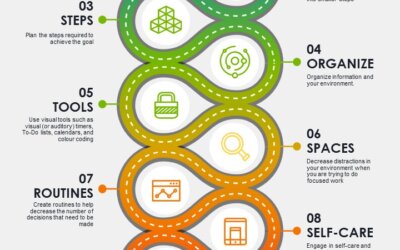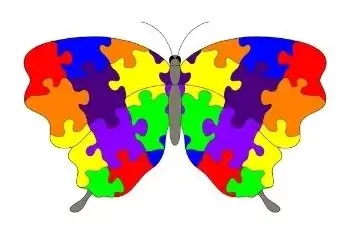What does it mean to be ‘hypersensitive’? To sense is the process of receiving information (stimuli) through our sense receptors about our external environment and internal bodily state. To perceive, on the other hand, is how we interpret that sensory input.
We’ve all been taught about the Five Senses. Yet biologists have catalogued over 36 sensory systems in the natural world. For example, sharks and platypuses detect electrical impulses to locate prey; snakes detect heat (infrared radiation); bats use echolocation (sonar); and bees can even pick up the earth’s magnetic field to predict bad weather.
Given this diversity, why do we label some sensory responses as over-reactive? Why do we say things like, “Stop overreacting”, “Don’t be such a baby”, “What’s wrong with you, weirdo”? Would the world fall apart if we collectively recognized that all perceptions are valid because we all have different sensory systems? Can we even harness these ‘extra-sensory perceptions’ as strengths?
Rebecca, like many neurodivergent folks, senses more than others. Her lived experience of neurodivergence and deep understanding of sensory differences is one of the things that brought her to practice psychotherapy at Scattergram. Read more about Rebecca’s experience below.
By Rebecca Goldstein
MSW, RSW, MTA, FAMI
Registered Social Worker
I have always been, and now know I will always be, more sensitive and emotional than many other people. Throughout my life, I have often been told or made to feel that these qualities are not seen as positive or desirable.
My hope is that neurotypical individuals also invest in personal growth and understanding, both for the sake of their relationships with neurodivergent individuals and for enriching our society with diversity and creativity.
Perhaps this is because these traits are traditionally associated with femininity, which society has historically undervalued. Regardless of the reasons, these aspects of myself have been sources of guilt and shame, despite being integral parts of who I am.
Over the years, I’ve tried various methods—therapy, crystals, magic, medications, meditation, education, and more—in attempts to change these innate qualities, only to realize that they are inherent and unchangeable.
Yet, I have come to accept and embrace my emotional sensitivity. I no longer view these traits as flaws requiring correction. Instead, I can now see benefits and even feel pride in these unique qualities. I hope that those who care about me can also come to accept and support this perspective. Maybe by starting with those in my circle, I can have an influence so that others don’t have to feel shame or guilt about these qualities. Maybe at some point soon, society will start seeing the value in these traits.
I spent ten years serving in the Canadian Armed Forces. This was not a neurodiversity-affirming environment, and my emotional sensitivity was not seen as a positive. I had quite a lot of difficulty with this environment for many reasons. For one, it was common to be screamed at by supervisors for inattention to details, or for not doing things in a specific way that for me was esoteric. I remember once being harshly criticized for not having written the date in “the correct format” (e.g. 24 June 2024). Another time when being inspected during morning muster, my supervisor yelled, “Look down at your epaulet (rank on my shirt),” As I looked down, I was then yelled at for having moved while standing at attention. These types of experiences, while I was often able to find comic relief in them, left me feeling misunderstood and sometimes worthless. Professional settings have often been a challenge where my emotional sensitivity has been seen as weakness.
I am not just sensitive; I am hypersensitive—a well-documented trait common among neurodivergent individuals. This means I am highly reactive to stimuli such as touch, sound, smell, and emotions, often becoming easily overwhelmed by too much information.
While hypersensitivity has its challenges, it also enhances empathy, creativity, and perceptiveness. In today’s sensory-overloaded world—filled with advertisements, cell phones, constant noise, and instant information access—my lack of filters and protective barriers can be particularly challenging.
I continually strive to stay grounded and relaxed, though achieving true relaxation remains elusive. Even under optimal conditions—well-rested, well-fed, and medicated—a sudden loud noise or a complex task can throw me off balance. My threshold for sensory and emotional stimuli differs significantly from that of many people.
Through extensive self-work, I have learned to use tools and systems to manage overwhelming situations promptly and prevent cumulative stress throughout my day. I have invested heavily in learning coping strategies and resources to regulate and ground myself effectively. My journey through therapy and medication, culminating in a graduate degree and specialization in this field, reflects my commitment to maintaining my well-being.
I have also learned that effective interaction with neurodivergent individuals requires a supportive and affirming approach. While most people mean well, their intentions can inadvertently lead to hurtful outcomes. Rejection Sensitivity Dysphoria (RSD) exemplifies how seemingly benign actions, such as offering advice or criticism, can trigger feelings of rejection and inadequacy among neurodivergent individuals.
Understanding these dynamics is crucial for fostering positive interactions:
- Listen: Instead of offering solutions or opinions, simply listen and validate feelings.
- Validate: Acknowledge and accept the person’s emotions without necessarily agreeing with them.
- Educate: Take initiative to educate yourself about neurodivergence rather than relying on the individual for information.
- Respect boundaries: Be mindful of physical contact preferences and respect personal space.
- Communicate clearly and directly: Avoid ambiguity or inferential language, opting instead for direct and literal communication.
- Anticipate sensitivity to change: Provide advance notice for any changes to routines or plans.
- Avoid triggering language: Steer clear of phrases that may invalidate or overwhelm, such as “You’re overreacting” or “Just relax.”, “You’re weird”, or “You’re high maintenance.”
I continue to work on enhancing my self-regulation skills and expanding my toolkit for managing my condition. Maintaining my health—through proper rest, nutrition, and relaxation—is essential for my well-being. My goal is not only to find inner peace and optimal ways of managing my equilibrium for myself, but also to support others like me on their journeys.
While I recognize that most people have good intentions, I have spent too long masking my true self and feeling burdened by unnecessary guilt and shame. It is incredibly exhausting to feel like you are always the one that must adapt to others. That you are constantly misunderstood.
Further information/resources:
Connecting
The Dots
My Neurodivergent Brain: A Note to Neurotypicals on Fostering Positive Interactions
While most people mean well, their intentions can inadvertently lead to hurtful outcomes. Rejection Sensitivity Dysphoria (RSD) exemplifies how seemingly benign actions, such as offering advice or criticism, can trigger feelings of rejection and inadequacy among neurodivergent individuals.
Crucial for fostering positive interactions:
Listen: Instead of offering solutions or opinions, simply listen and validate feelings.
Validate: Acknowledge and accept the person’s emotions without necessarily agreeing with them.
Educate: Take initiative to educate yourself about neurodivergence rather than relying on the individual for information.
Respect boundaries: Be mindful of physical contact preferences and respect personal space.
Communicate clearly and directly: Avoid ambiguity or inferential language, opting instead for direct and literal communication.
Anticipate sensitivity to change: Provide advance notice for any changes to routines or plans.
Avoid triggering language: Steer clear of phrases that may invalidate or overwhelm, such as “You’re overreacting” or “Just relax.”, “You’re weird”, or “You’re high maintenance.”




